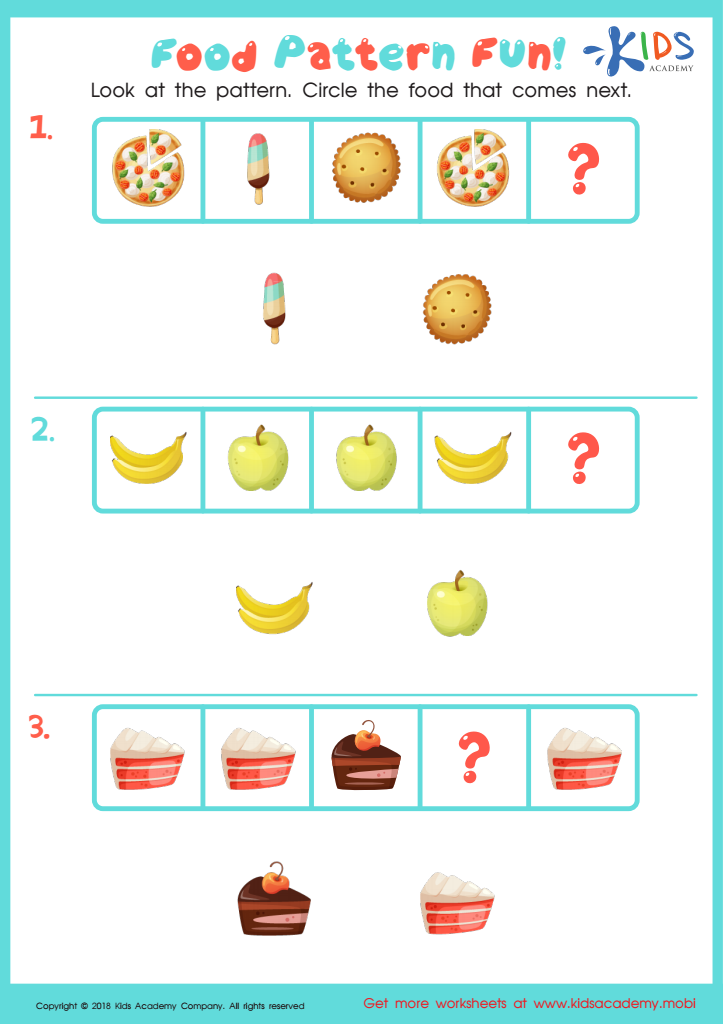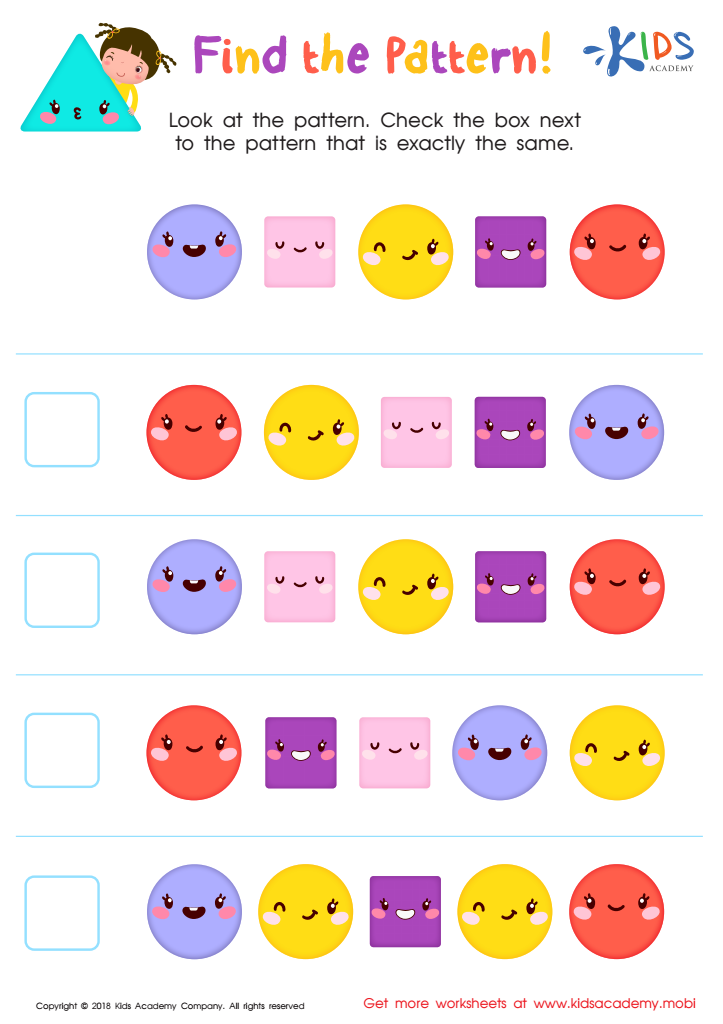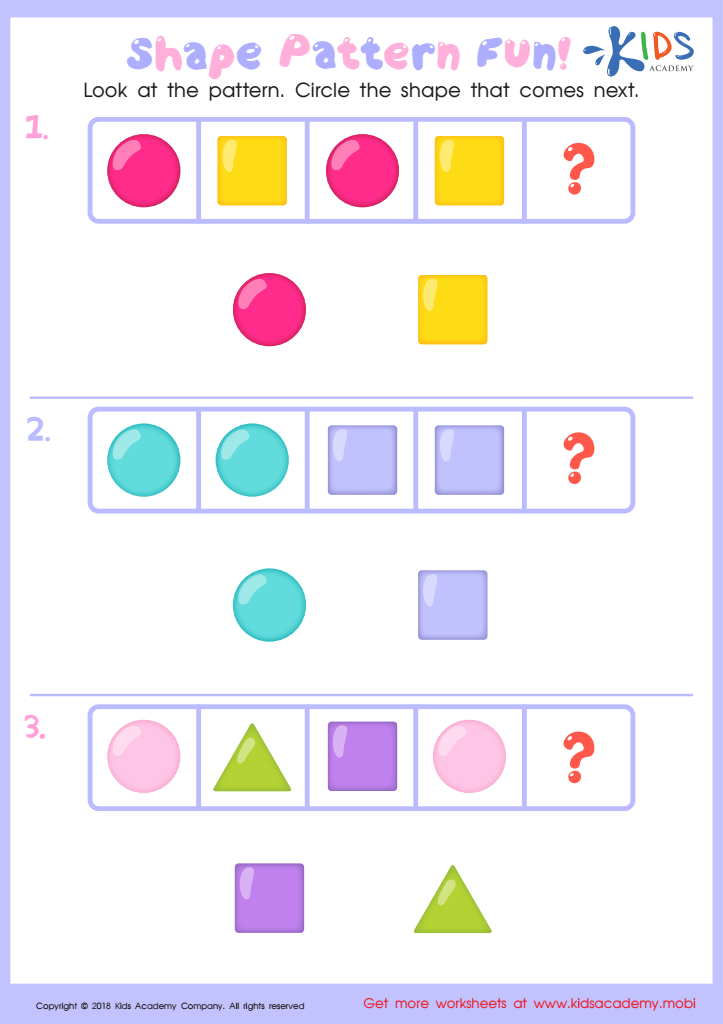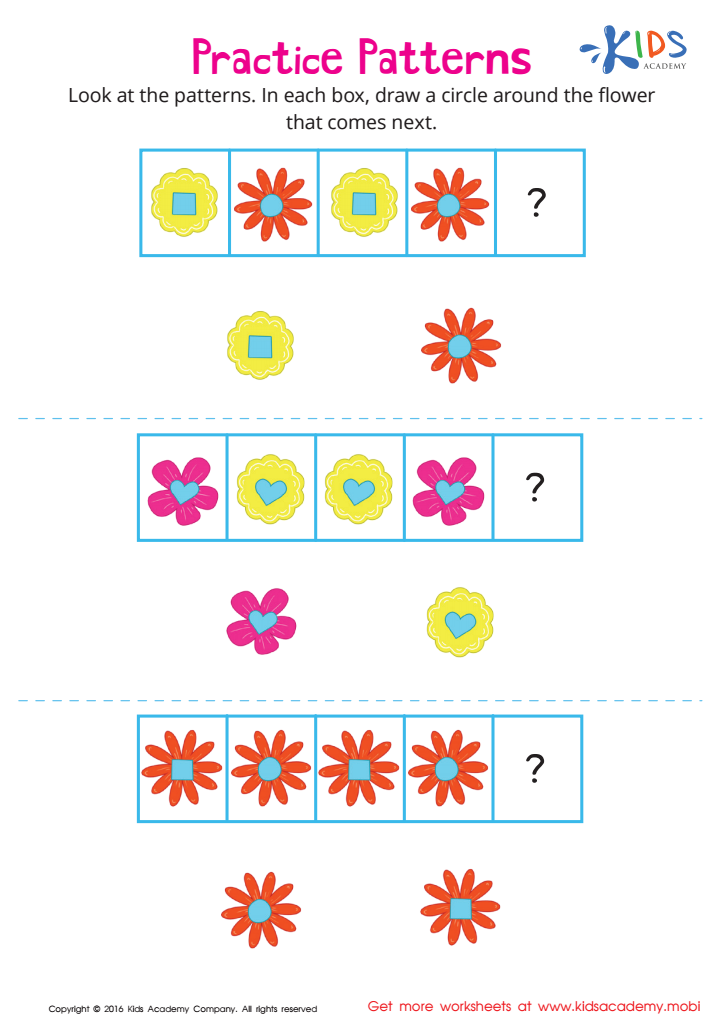Pattern recognition Normal Patterns Worksheets for Ages 4-7
5 filtered results
-
From - To
Discover our engaging Normal Patterns Worksheets designed specifically for children aged 4-7, featuring interactive activities that foster essential pattern recognition skills. These worksheets aim to enhance early math learning through fun, age-appropriate exercises that capture young learners' attention. Children will explore various patterns, helping them to identify, extend, and create sequences in a playful way. Each worksheet is thoughtfully crafted to promote critical thinking and fine motor skills while laying a strong foundation for future mathematical concepts. Ideal for homeschoolers, teachers, or parents, our resources make learning patterns an enjoyable experience tailored to support your child's development and confidence in math.


Food Pattern Fun Worksheet


Find the Pattern Worksheet


Make the Same Pattern Worksheet


Shape Pattern Fun Worksheet
Parents and teachers should prioritize pattern recognition in children aged 4-7 because it lays the foundation for critical cognitive skills that are essential for future learning. During this developmental stage, children’s brains are particularly receptive to recognizing patterns, which includes not only shapes and colors, but also sequences in numbers, sounds, and even behaviors.
Understanding normal patterns helps children make sense of the world around them, fostering problem-solving abilities, logical thinking, and mathematical skills. For instance, recognizing and creating patterns improves children's ability to see relationships in math, such as addition and subtraction, which are crucial for later mathematical concepts.
Moreover, pattern recognition enhances language development; as children identify repeating sounds or rhythms, they bolster their phonemic awareness, which is vital for reading. Socially, understanding patterns in behavior contributes to better communication skills and emotional recognition, helping children navigate their relationships with peers.
Engaging children with pattern activities—such as music, art, and games—stimulates their curiosity and creativity. By supporting these skills today, parents and teachers are not only enriching children's early learning experiences but also setting them up for academic success in later years.
 Assign to My Students
Assign to My Students

















